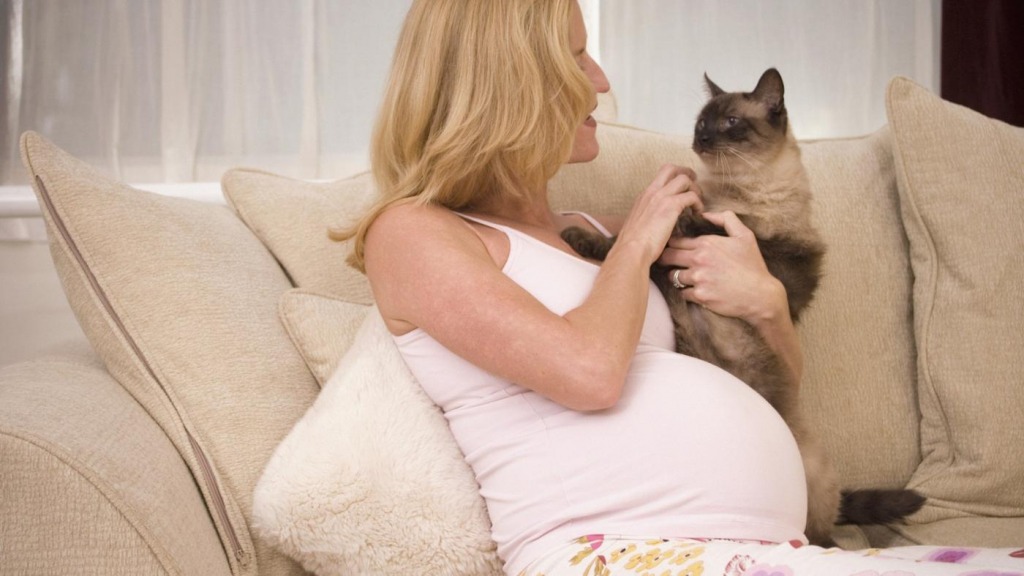
The solid wastes of cats that contain a parasite called toxoplasma gondii can cause toxoplasmosis which is rare but a serious blood infection. Toxoplasmosis can also caused by eating infected, undercooked meat or by including contaminated fruit or vegetables. If you have had cats already, you may be already been exposed to toxoplasmosis and developed an immunity to it.
Toxoplasmosis is common in areas with warm, moist climates. More than 50% of the population in Central and Southern Europe, Africa, South America and Asia are infected with toxoplasmosis and is common in France possibly due to the usage of minimally cooked and raw meat.
For women who are not immune to toxoplasmosis, exposure to this infection during pregnancy may cause the fetus to be infected. When the mother gets infected between weeks of 10 and 24, the risk for problems in the newborn is about 5-6%. The problems on the baby include premature birth, low birth weight, fever, jaundice, abnormalities of the retina, mental retardation, abnormal head size, convulsions and brain calcification.
When the mother gets infected during the 3rd trimester, a fetus has an increased risk of becoming infected. However, the risk of damage caused to the fetus is decreased because most of the important development has already occurred.
Most healthcare providers will definitely screen for toxoplasmosis immunity either before pregnancy or during the first prenatal visit. A blood test will determine whether toxoplasmosis is present, and if treated regularly with antibiotics the risks of severe damage to the baby can be reduced. Cordocentesis is a detection test which can determine whether an infection has occurred during pregnancy.
It is the most powerful creation to have life growing inside of you.There is no bigger gift